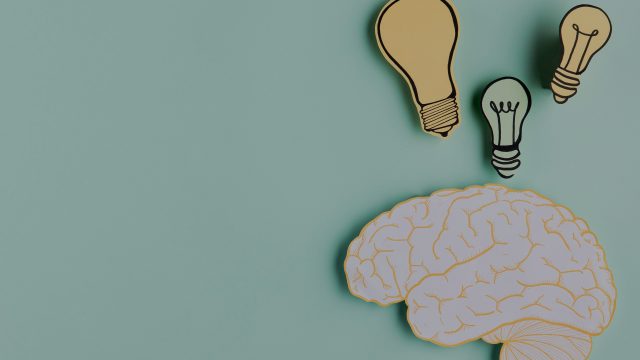7 THINGS THAT (IN MY OPINION) MADE ME SMARTER
We view education as a crucial component of life preparation. They say the key to success is to work hard in class and earn good grades.
However, be sincere—how much calculus do you use daily? How often do you recall the chemistry you took in high school? How frequently do you reflect on the great books you read in English class?
The truth is that those who can learn on their own tend to be the most successful today. You'll be ahead of most people today if you lead a fulfilling life and pursue your interests in academic pursuits.
This article examines the activities I've engaged in throughout my life that have advanced my personal development. I've been incredibly fortunate in my life, and I've had a lot of interesting experiences that have helped me become the person I am today. And I hope that by sharing some of my journey, other people can use it to better themselves.
1.Practical knowledge
Going out and doing things in the real world comes first on this list. particularly when that stuff is difficult. Most people will admit that starting their own business taught them more than they ever did in school, by a factor of about 100. They'll tell you that while some of the theories they learned in business school were helpful, nothing could possibly have prepared them for the realities of running their business.
It's been the same in my life. I've studied under a few outstanding professors at school and have read a lot of excellent books. But my actual actions have had a much greater impact on who I am. I've had a lot of amazing experiences in my life, but the two most significant were probably selling pest control door to door during the summer and helping to run a moving company at my college.
Both jobs were incredibly challenging and uncommon, especially for college students. They both occasionally caused me great discomfort, put me in situations that I was unsure how to handle, and greatly aided in my personal development.
2. Taking part in strategy games, particularly the Pokémon Trading Card Game
Many of the smartest people I know enjoyed playing strategy games like chess as children. Of course, you may wonder if this is simply a result of strategy games being more appealing to intelligent individuals. Additionally, I lack experimental evidence to support either direction of the causal link. But I'd contend that it makes sense in both directions.
This is so that you can practice thinking strategically, which is essential if you want to accomplish difficult tasks in the real world. Furthermore, at school, you are rewarded for saying things that the teachers find interesting. However, in strategy games, you are rewarded for wise choices. We also tend to repeat actions that result in rewards.
3. Traveling
Traveling teaches you how to adjust to change, just like playing Pokémon. Life is challenging, but when we consistently do the same things, we develop the skills necessary to overcome all obstacles. And as a result, sometimes we find ourselves operating on "auto-pilot."
But we must reconsider everything when we are suddenly thrust into a new culture and environment. Although it is extremely uncomfortable, doing that teaches us to be adaptable. The more accustomed you are to change, the better equipped you will be to handle it when it occurs in the world.
I now travel constantly. I travel for a few months at a time to whichever nation strikes my fancy, and each new location makes me reevaluate every choice I make daily. To explore a city without relying on Google Maps, for instance, I typically try to avoid carrying my phone with me wherever I go.
4. Reading
The best way to expose yourself to new concepts is through reading. Reading allows you a close look at how other people perceive the world. I feel like I know my favorite authors better than I know most of my friends because it's much more in-depth than you can get from TV or even from casual conversation.
Additionally, many books contain amazing ideas. You can become extremely intelligent by reading a lot of works by brilliant authors, absorbing their ideas, and then incorporating them into your own thought processes.
This is especially true if you read a wide range of books on numerous different topics. You can become somewhat multidisciplinary if you have a diverse range of interests, which will enable you to transfer knowledge from one field to another. (Plus, it makes you more entertaining to converse with at cocktail parties.)
5.Attending unconventional schools
Growing up, I struggled with a lot of behavioral issues, and "normal" schools weren't very effective for me. But coming here gave me the opportunity to live in a place where people genuinely cared about me. They also took a direct approach to teaching me to be kind and respectful, not beating me over the head with rules and paperwork or making me deal with the politics of most public schools. In the end, that showed me how to live a "normal" life.
After that, I pursued independent study throughout my time in high school. I attended a few 30-minute classes each week rather than six hours of sitting in class, and the rest of my time was spent reading and doing homework. Because you can absorb the information at your own pace, in my opinion, it's a significantly better method of learning. It also taught me how to manage my time well and stay organized.
6.Studying philosophy
People mock philosophy because they believe it has no application to any particular profession. Who in the hell would hire a philosophy major? You can get a job in marketing, and you can get a job in computers.
However, it turns out that philosophy is extremely significant. This is because it imparts the ability to reason logically. You'd think people would already be able to do that, but it seems we need training; perhaps the human brain wasn't designed to be so logical. I learned how to reason through an issue, apply logic, and arrive at a reasonable conclusion from philosophy. You need that skill to perform almost any job in the new economy.
7.Working in restaurants
When I owned my moving business in college, I made a funny discovery: every single one of my top workers had previously worked in a restaurant. How come? I can't say for sure, but I believe it is because working in a restaurant is challenging. You are really pushed to the limit by it. If you wait tables, you'll need to get drinks for Table 5, check on the filet mignon for Table 3, take Table 22's order, get new silverware for the 5-year-old at Table 23 (he threw his fork on the floor), chat with the snippy woman at Table 11 about the wine list, and keep track of about a dozen other things while maintaining a smile. In either case, you must act quickly because if you make customers wait too long, they will become irritable, and your life will become even more difficult.
Sharing our experience



-
US
405 Lexington Avenue,
NY 10174, US -
UA
Druzhby Narodiv Blvd 5
Kiev, Ukraine - +3 8063701660 (UA) +1 646 751 76 06 (US)
- [email protected]
